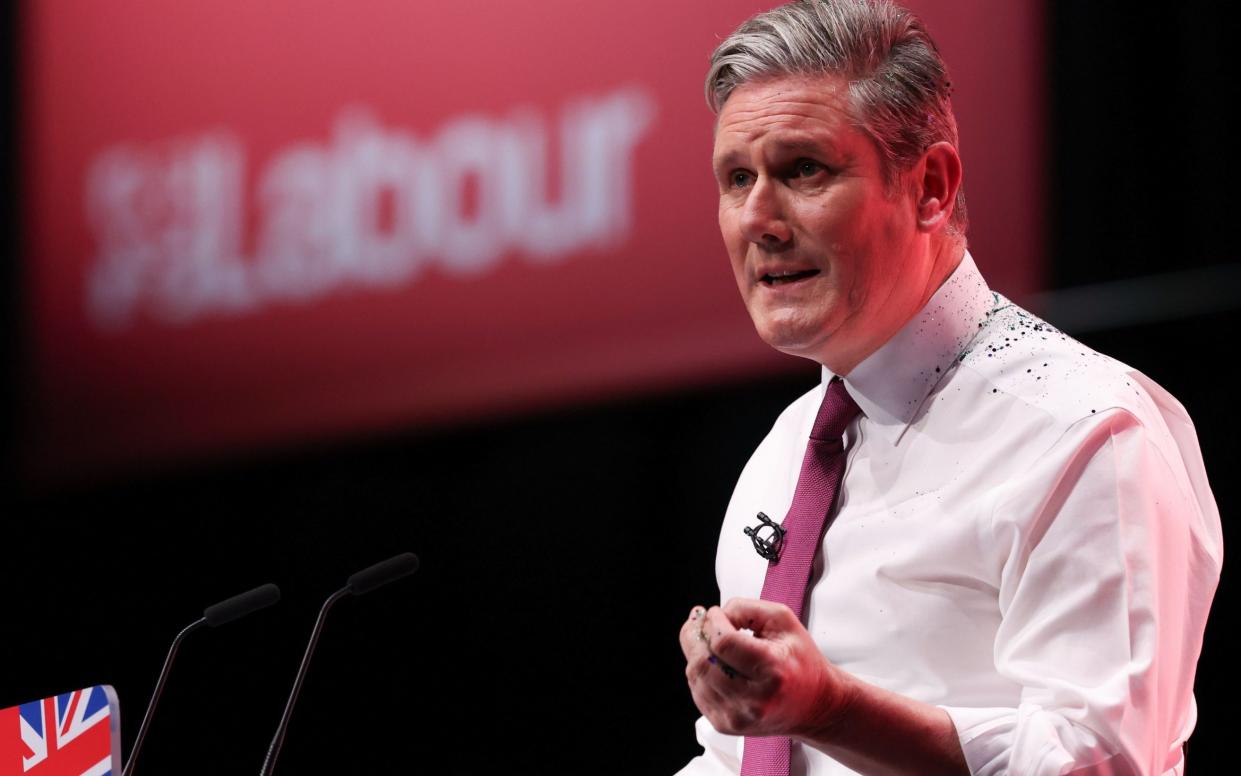Only one fact matters in politics: the Tories squandered 13 years in power

- Oops!Something went wrong.Please try again later.
- Oops!Something went wrong.Please try again later.
The protester who tried to disrupt Keir Starmer’s Labour conference speech probably did him a favour. “Protest or power? That’s why we changed our party,” was the initial response of a man who looked extraordinarily unfazed by the unforgivable failure of his local security team.
And indeed that has been the narrative of Starmer’s leadership in the last four years of his leadership: the abandonment of the old Left’s obsession with protest and virtue-signalling. This speech was his most accomplished since he took the reins from Jeremy Corbyn, not least because it had a central, logical theme and because it started to put some flesh – if only a little – on the bones of Labour policy.
It was still a little plodding, but the substance was worthwhile. There was a reminder of some of the policies that have already been announced: GB Energy, abolition of the non-dom tax status, a commitment to building many, many new homes, a promise of more devolution for communities… The speech went down so well that it would be churlish to point out that the reason so little necessary housing development has happened in recent years is because local communities already have too much power to block them. But that is a dispute for another day, and perhaps another parliament.
The thread that permeated Starmer’s oration was that of renewal. The last 13 years under the Conservatives have been wasted, compared to the same amount of time that preceded Tory hegemony. As Starmer has grown in confidence as leader, he has shown himself more enthusiastic about embracing the record of the last Labour government. He even referred to Labour, after recent changes pushed through by him, as “a new party”. Sadly, he stopped short of calling it “New Labour”, but the audience knew what he meant.
In fact, hidden not very far beneath the surface were a couple of important indicators of what we can expect from a Starmer government. Reform of the NHS was explicitly promised, and then came something that could never have emerged from the mouths of either Corbyn or his predecessor, Ed Miliband: a new partnership with business, on the grounds that “private enterprise is the only way we can pay our way in the world.”
This was yet another example of Starmer’s growing confidence, for it takes a lot of nerve indeed to be able to tell Labour conference something that is, to the rest of us, blindingly obvious (although an assertion that “fiscal responsibility is non-negotiable” received a response evocative of a tumbleweed-strewn wasteland).
For the Conservatives, the most dangerous parts of Starmer’s speech were his repeated references to decline in the last 13 years. Aside from a dig at Rishi Sunak for going to Manchester to announce the scrapping of HS2 northwards to that city, there was no mention of the scheme. But there didn’t need to be. Speaking of the levelling up agenda and the Tories’ success in the red Wall in 2019, he said: “As soon as they had counted the votes, they turned away.”
This will be Labour’s central attacking theme in the course of the next year: 13 years of decline preceded by 13 years of growth under a Labour government and followed by a government similarly committed to growth, including new New Towns and what Starmer termed “The Big Build” (in contrast with Nigel Lawson’s “Big Bang” of the 1980s).
It will be a difficult message for Sunak to counter.

